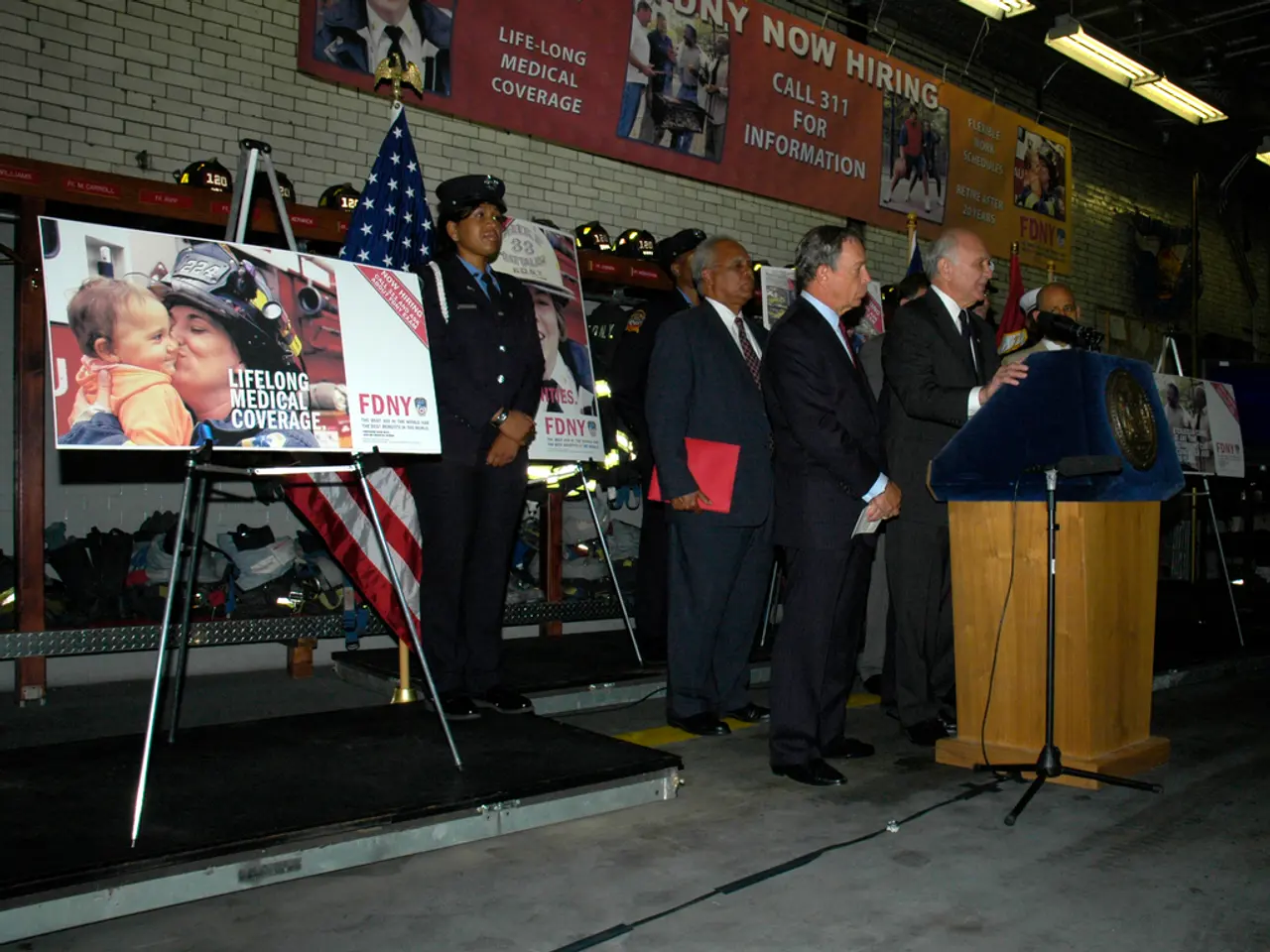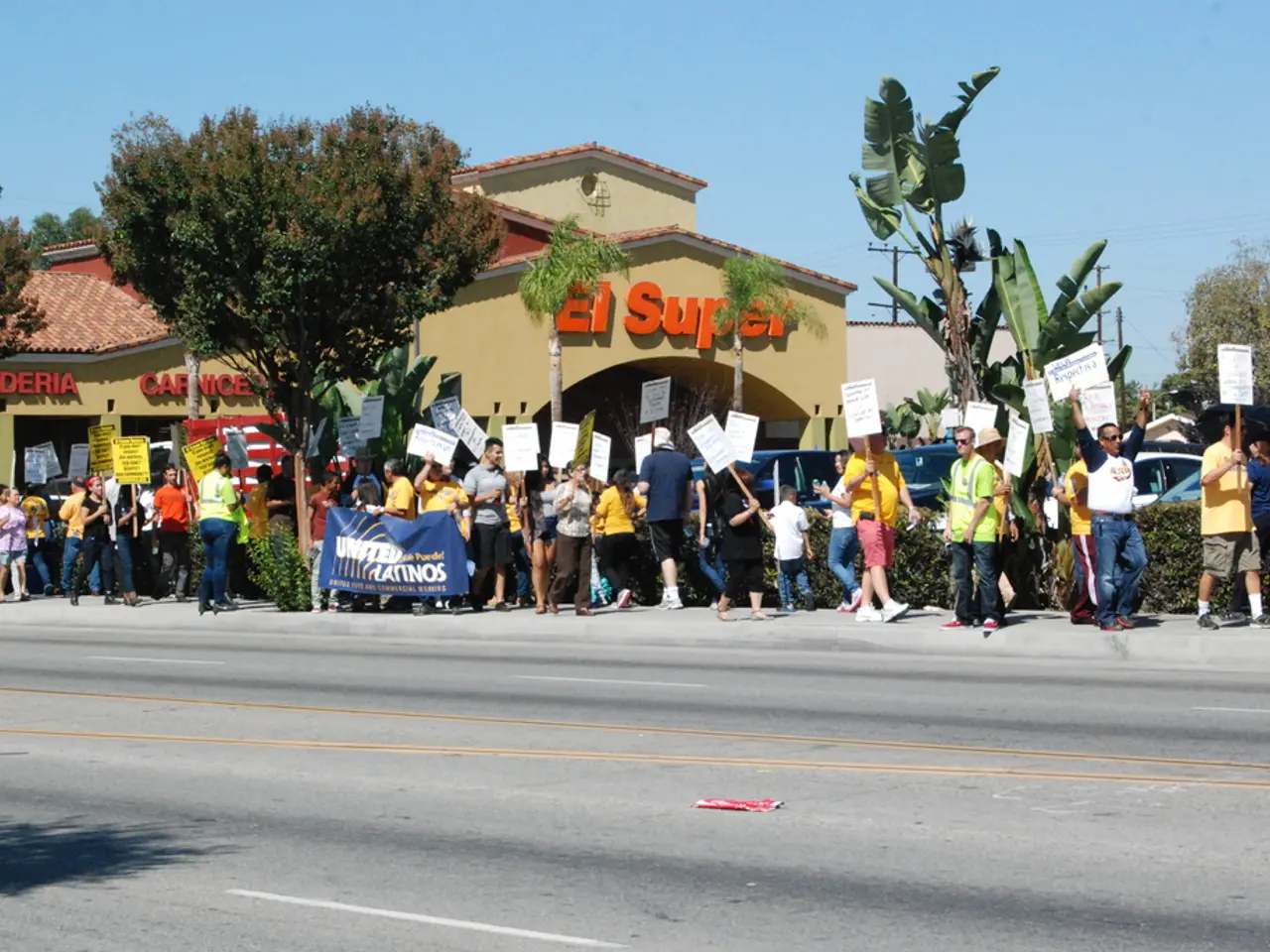Parliamentary stalemate in Kosovo court nearing six-month mark, facing pressure to break impasse
Kosovo's Political Crisis Deepens as Constitutional Court Clarifies Voting Procedure for Parliament Speaker
Kosovo's political crisis continues as the Constitutional Court is set to clarify the voting method for the parliament speaker by next Friday. The deadline for this clarification comes amidst numerous failed attempts to elect the parliament speaker's leadership.
The crisis centres on voting procedures, with Prime Minister Albin Kurti's party, Veteevendosje, proposing secret ballots, while opposition parties demand open voting as constitutionally required. The right-wing Democratic Party of Kosovo (PDK), centre-right Democratic League of Kosovo (LDK), and President Vjosa Osmani have all separately petitioned the Constitutional Court for clarification.
The Constitutional Court enforces a 30-day constitutional deadline to constitute the Assembly and elect the Speaker, after which no related Assembly action is valid. This deadline was set after Kosovo's parliamentary elections in February, in which Kurti's party won 48 seats but failed to secure the majority needed in the 120-member parliament.
The required voting method for the Speaker is an absolute majority (61 votes), but the Court's clarification on alternative voting methods or resolutions to deadlock has been limited or awaited. In the past, the Assembly did not reach the required 61-vote threshold for the Speaker, leading to 52 unsuccessful voting attempts starting from April 15. The Speaker vote requires an absolute majority, and the ruling party’s candidate, Justice Minister Albulena Haxhiu, was consistently rejected by opposition parties.
Veteevendosje MPs argue that the opposition parties refused the coalition without a valid reason in the interest of the country. In response, LDK lawmaker Vlora Çitaku criticized Albin Kurti for obstructing cooperation and holding Kosovo's institutions hostage. Çitaku also stated that Kosovo and its future are more important than the careers of Albin Kurti and Albulena Haxhiu.
The opposition parties are believed to be using constitutional demands as a cover to derail another Kurti-led government. Haradinaj stated that the demand for the vote to be public and for the candidate for assembly speaker to be changed indicates an impending new election. Kurti's party proposed a secret ballot as a means to persuade some opposition MPs to vote for their candidate.
Another key issue in the standoff is the election of Justice Minister Albulena Haxhiu as assembly speaker. Bogujevci, another Veteevendosje MP, expressed his opinion that the opposition's refusal of the coalition is not justified if considered in the interest of the country.
The Constitutional Court ruled that the Assembly must be constituted, including the election of the Speaker, within a 30-day deadline after the parliamentary elections. After this 30-day period, any decisions or actions by the Assembly deputies regarding the Constitutive Session are prohibited. The Court issued an interim measure effective from July 27, 2025, until August 8, 2025, underlining that the Assembly must be formed within this deadline.
As the Constitutional Court prepares to clarify the voting method for the parliament speaker, the political crisis in Kosovo continues to unfold. The outcome of this clarification could potentially bring an end to the deadlock and pave the way for a functioning government in Kosovo.
- The ongoing political crisis in Kosovo, centered around the voting method for the parliament speaker, has led to an intensified focus on policy-and-legislation, with the Constitutional Court expected to clarify the issue by next Friday.
- As war-and-conflicts and crime-and-justice issues take a backseat, general-news outlets are closely monitoring politics in Kosovo, with the Constitutional Court's decision potentially bringing resolution to the current political deadlock and shaping the future of Kosovo's government.








